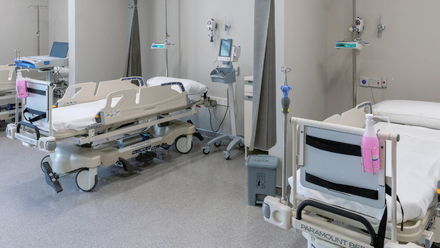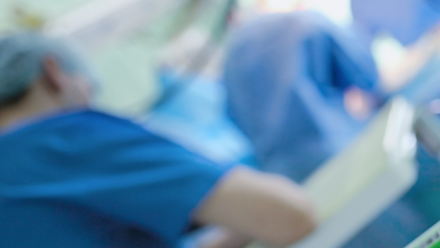Failing to get vaccinated puts everyone’s lives at risk
The Intensive Care Society is urging anyone able to be vaccinated to do so as quickly as possible, and we welcome the booster jabs for healthcare professionals and over 50s. Both are vital tools in preventing the potentially devastating effects of COVID-19 for ourselves and those we love.
Intensive Care Society Chief Executive, Dr Sandy Mather, says “After a difficult 18 months for all of us, it's important we continue to reduce the spread of COVID and build on all the hard work we’ve already done. Intensive care is on its knees, and it is imperative that the nation continues to show its support, so we can keep trying to manage the flow of both COVID and non-COVID patients. Prevention is always better than cure, so we need to continue to wash our hands more frequently, always wear a mask indoors, keep our social distance, and get vaccinated if we can”.
With more than 80% of the UK’s adult population fully vaccinated, it is now our unvaccinated friends, colleagues and family members who are being admitted to intensive care with coronavirus. As we get used to life without restrictions it is easy to feel we have won the battle against COVID, but for some of us this will never be the case.
Many patients now requiring treatment have not had a vaccine, and their admission to ICU could have been avoided. Despite the best efforts of specialist staff who work tirelessly to save the lives off those in their care, not every case of COVID-19 is curable. Some of these patients will never return home to the people who love them.
These preventable hospitalisations also mean staffed beds are not available for others who need them. Patients with COVID require much longer stays on ICU. This means, for each COVID case admitted to intensive care there are 10 people who cannot have cancer surgery, transplants or other life-saving treatments.
As Winter fast approaches, we know this capacity crisis will only deepen, and we must prevent its most devastating effects. With around 30% of ICU beds in England alone already occupied by COVID patients, we are seriously concerned about what lies ahead in the coming months.
“While we’re seeing fewer COVID patients now than at the peaks of previous surges, our ICUs are still under enormous pressure, and these patients have a huge knock-on effect for both resources and staffing. We’re trying to catch up on a backlog of planned surgery and other care, and continued COVID admissions make that incredibly difficult,” says, Intensive Care Society President, Dr Stephen Webb.
The pressure faced by our specialty over the past 18 months has been well documented. To cope with demand, every unit in the UK extended to surge capacity – by January 2021 we had created 2251 ICU beds across the country. But beds do not care for patients, staff do, and we cannot expect them to repeatedly cope with surge occupation levels.
Dr Webb goes on to say “During exceptional pandemic conditions we were able to create surge ICU areas to care for COVID patients, but this was only possible by stopping other hospital activities and drawing on the support of our colleagues from other specialties. Our paediatric ICU colleagues have already voiced they are unable to support during the winter as they are already facing surge pressures from patients with respiratory syncytial virus (RSV).”
Intensive care units were already experiencing high rates of sickness, burnout, and staff leaving ICU as a profession altogether, and this has only continued to increase. The result is a massive shortage of fully trained intensive care staff, making it impossible to support even normal levels of demand. This is not sustainable.
The UK has been incredibly lucky to have one of the world’s leading vaccine rollout programmes. However, unfortunately this is not the case for many countries. Many of our intensive care colleagues around the globe are having to encounter the virus in the same way we were back in 2020 (without vaccines), with devastating impact.
One of the biggest threats our global community faces, as we in the UK enter winter pressures, is the emergence of new variants that are less sensitive to the currently available vaccines.
The risk of additional variants developing in countries with high levels of viral transmission and low vaccination rates, as we continue to further unlock travel destinations (and routes), poses a clear and present threat to the UK’s biosecurity.
It is abundantly clear that the vaccine equity is a problem. The support of the UK and other G7 nations is urgently required to ensure COVID vaccines reach those who need them, wherever they live: This is more than just global health do-gooderism, it is in the UK’s self-interest to ensure we minimise the risk of future variants breaking our NHS.
We will not be safe until we are all safe!
To ensure that our lives, and the lives of many others, are not cut short by COVID-19, we must get vaccinated as soon as possible. And at the very least, please always remember Hands, Face, Space, and Ventilation.



